




 |
   |
 |
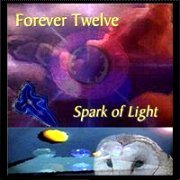 |
Spark of Light (2004, 59.22) ****/TTTRamaSpark of Light Keep it Alive Brown Cloud Mouse Life Changes |
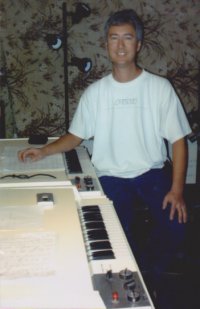 |
Current availability:
Mellotrons used:
Forever Twelve (great name!) are a new(-ish) US prog outfit who do their level best to ignore the simplification of the genre that has blighted it so heavily over the past couple of decades. They've actually been around in one form or another since the early '90s, releasing their debut, Remembrance Branch, in 2002. Two years on, Spark of Light appears and, while I can't compare it to its predecessor, it stands up pretty well, although I suspect it'll take some listens for the material to sink in. Forever Twelve rarely use one note where several will do, which may drive some of you mad, but this approach avoids the tedium induced by many newer bands, who appear unaware of the existence of key and tempo shifts, not to mention the odd chord change... Cat Ellen's vocals, while good, start sounding samey after a few tracks, but that's probably a criticism you could level at many singers; suffice to say, she does a decent job without particularly standing out.
Keys man Steve Barberic plays a range of instruments, including a (borrowed) MiniMoog and no fewer than two borrowed Mellotrons (right). He gets 'em in on all but one track, although most of his use is pretty restrained, concentrating on strings. There are a couple of flute sections (I think he plays alongside Cat's real one at one point), but, surprisingly, only one short burst of choir. Mellotron highlight? The one-minute strings solo (no overdubs, apparently) at the end of the last track, Life Changes.
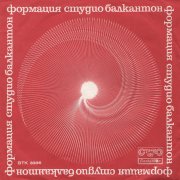 |
7" (1975) ***/T½ Hours Earth |
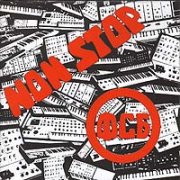 |
Non Stop (1977, 33.04) ****/TTT½DynamicPower and the Glory Ten Years After Free Hands Reflection Green Door My Town Intermezzo |
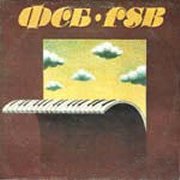 |
II (1978, 33.22) ***½/TTDawnMorning Three Harmonies Playing the Gamut Gold Song For Goodbye |
Current availability:
Mellotrons used:
FSB are a weird one; just about the only Bulgarian prog band I can think of and they sound like... Santana. Well, a little. I'm actually having trouble tracing their main influences, but there's an awful lot of West Coast fusion in there, along with the Latiny stuff, maybe a touch of Happy the Man or similar. Mind you, that outfit were quite jazzy too; take it as read that if you heavily dislike fusion, you're not going to feel too at home with this lot. Saying that, their first two singles were covers (and good ones) of PFM songs, namely E Festa (a.k.a. Celebration) and Impressioni Di Settembre (a.k.a. The World Became The World), albeit both Mellotron-free. Their next 7", which translates as Hours b/w Earth, appears to be self-written; the 'A' is decent enough, if a little on the commercial side, while the flip is really rather good, in a 'progressive pop' vein. Both sides feature the Mellotron, with what sounds like upfront choirs on Hours and more distant ones on Earth. Both tracks are available on a '90s compilation, Single Collection [sic].
Gentle Giant have a heavy presence on their debut, 1977's Non Stop (from the Brian Aldiss novel?), with a straight cover of the non-album Power And The Glory and an instrumental (and mis-titled) Free Hands, along with various other covers, including the excellent Dynamic and Intermezzo, both from Patrick Moraz' i. Suffice to say, this is a fairly major Mellotron album, with a massive choir intro on Dynamic and extra added strings, while Le Orme's Ten Years After is string-soaked, as are Green Door and Intermezzo, while My Town features the rarely-heard Mellotron pipe organ at its close. Track this album down.
I believe their later releases are pretty awful, but II's a good, if not great album, excellent playing and dynamics throughout and vocals on only a couple of tracks, thankfully. I'm not much of a fusion fan myself, but it sounds to my ears to be as good as plenty of better-known names, with more of a 'prog' feel than many of them. There isn't an awful lot of Roumen Boyadjiev (or possibly Konstantin Tsekov)'s Mellotron, with naught but background choirs on a few tracks and some more upfront stuff on Playing The Gamut (I think - this is being reviewed from a tape), under a solo female voice, which turns out to be a spectacular and near-unique combination. Well worth hearing.
Two slightly strange records, then, but worth picking up if you should happen to run into copies. Non Stop's a bit of a Mellotron classic and, while II isn't, it's an unusual album to which you may well find yourself returning. Oh, and thanks to Mike for spotting the other covers on their first album. I've now listened to all the band's single-only tracks I can find (the only one I can't trace is Da Svirish Gamata, or Play The Range), but all except the one listed above appear to be bereft of Mellotronic involvement.
n.b. Balkanton was (is?) actually Bulgaria's primo studio facility, active since the '60s; I presume the band were the cream of their session players, using the studio's equipment, so who knows how many other Bulgarian albums may feature the studio Mellotron? For what it's worth, after a trip to Bulgaria (not actually for this reason - honest), I can confirm that the rumoured Mellotron on their third (mini-)album, The Globe (**½), is nonexistent, while the music's pretty rotten, too, keeping the band's jazziness, but allying it to some awful soul-inflected pop, with only the occasional interesting chord sequence to pep things up. As for their later live album... I refrained from buying a copy (this was all at an open-air flea market near the main cathedral), as the sleeve pics showed a horrendous early-'80s pop act, with a bevy of dullsville synths and zero Mellotron. Funny, that. Incidentally, both sides of the above single have been compiled onto different volumes of a three-volume compilation; I found them for £4.00 each, but apart from a handful of tracks from the above albums, they would've been largely rubbish, so I (foolishly?) passed on them. No sign of CD versions of either Non Stop or II, either - nor did I find them on vinyl.
 |
Formica (2011, 26.09) **½/TPodiumTelescope Polish Speed Happy My Story Burgbier Rock'n'Roll The Apple |
Current availability:
Mellotron used:
There's a sign on the A40 as you enter West London, alongside an RAF aerodrome, that says 'Polish war memorial'. I know exactly what it means, and I wish no disrespect to Allied airmen from Poland, but I can't help smiling when I see it. The same goes for track three here, Polish Speed. As in 'to polish'? Or as in 'from Poland'? After listening to it, I can't say I'm any the wiser. Formica's lone, eponymous 2011 album languishes in obscurity, possibly due to their insistence on playing a particularly dreary form (hah!) of indie, of which Polish (or Polish) Speed is a fairly typical example. Any better tracks? Perhaps My Story and closer The Apple, but 'better' is pushing it a bit.
Nicolas Méheust (Chien Vert) plays (presumably) his own M400 on The Apple, with a nicely-arranged flute part running through the five-minute track, plus chordal strings at the end. Allow me to say, "Best thing on the album". It's now over a decade since Formica's release, and approaching ten years since their last release. Can we assume they've given it up as a bad job? Please?
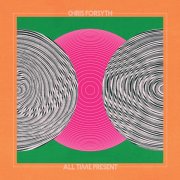 |
All Time Present (2019, 74.04) ****/TTomorrow Might as Well Be TodayMystic Mountain The Man Who Knows Too Much Dream Song The Past Ain't Passed New Paranoid Cat (Livin' on) Cubist Time Techno Top |
Current availability:
Mellotron used:
I'm surprised I haven't encountered Chris Forsyth before, but with so many, many artists doing the rounds, it's easy to miss the good ones. Forsyth operates in an area loosely bound by guitarists such as Jerry Garcia, Richard Thompson and Television's Lloyd/Verlaine pairing, so it shouldn't come as any great surprise to learn that he tends towards an Americana/jamband style, albeit far better than that sounds. If 2019's All Time Present has a fault, it's its length; over seventy minutes of anything had better earn that extra time. There is a lot of jamming to be heard, but it's more 'live Thompson' than 'live Dead' (let alone Live Dead), so Forsyth gets a Get Out Of Jail Free card. Highlights? Opener Tomorrow Might As Well Be Today, the nine-minute Mystic Mountain and Dream Song, maybe. Perhaps surprisingly, there's nothing here that could obviously be ditched for the sake of brevity, although (Livin' On) Cubist Time is mildly inessential, while twenty-minute closer Techno Top begins to drag after a while.
Shawn Edward Hansen plays Kawari Sound's studio M400, with a rather shrill string part on Tomorrow Might As Well Be Today, neither here nor there, to be honest. I really must delve more deeply into Forsyth's back catalogue, possibly in another life, when I actually have the time. Not for improv-haters, then, but a fine, if slightly overlong album.
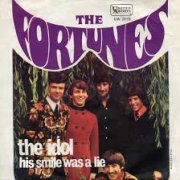 |
7" (1967) ***/TTT The Idol His Smile Was a Lie |
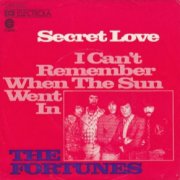 |
7" ( 1972) **½/TTT Secret Love I Can't Remember When the Sun Went in |
Current availability:
Mellotrons used:
Brummies The Fortunes were one of the beat era's lesser lights, although they notched up five hits between 1965 and '72, making them less 'lesser' than many others, I suppose. One of their misses was 1967's The Idol, already sounding dated in those fast-moving times; its flip, His Smile Was A Lie, is actually the better song, at least to my ears. The 'A' has a rather mixed Mellotronic presence, presumably from David Carr, featuring a brief, solo something (one of the brass sounds?) at one point, plus string and flute parts towards the end, the platter's major use being on the flip, with heavy-duty strings all over the track.
Another miss (there were many) was 1972's Secret Love, an overblown string-driven ballad more suited to several years earlier, backed with the unanthologised, mournfully atmospheric I Can't Remember When The Sun Went In. The flip is absolutely smothered in Mellotron strings from George McAllister, making it worth hearing for fans of, well, Mellotron-smothered mournfully atmospheric ballads several years out of time. The single seems to be available pretty cheaply online and someone's thoughtfully put the b-side on YouTube, but until/unless a record company decides to release an album of Fortunes b-sides (why?) this is unlikely to turn up on CD any time soon.
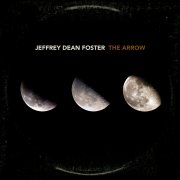 |
The Arrow (2014, 49.53) ***½/T |
|
| Life is Sweet When You Break Morningside Dear Friends and Gentle Hearts The Sun Will Shine Again The Lucky One Young Tigers Disappear I Will Understand |
Jigsaw Man Hang My Head on You Open Book Out of the Blue The Arrow The Cosmonaut |
|
Current availability:
Chamberlin used:
Jeffrey Dean Foster's second full album, 2014's The Arrow, comes almost a decade after its predecessor, Million Star Hotel, displaying a considerable maturation in his particular vein of powerpop. Top tracks? Morningside, Young Tigers Disappear, the beautiful I Will Understand and the effective closing title track, given that The Cosmonaut is no more than forty seconds of whooshing noises.
The legendary Mitch Easter does his usual Chamberlin thing, with occasional flutes on Morningside and upfront strings on Open Book, including a brief section that sounds like he might have been playing with the drivewheel. This is good, but if Foster's next album is as good again, it'll be essential.
See: Samples etc.
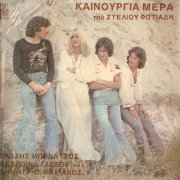 |
Kainourgia Mera (1975, 36.05) **½/TTT½ |
|
| O Kain Tha Tragoudao Gelate To Tabourlo Zoi Paliatsos H Selida Ma Pos Fovame |
Oso Ki an Psaxno Esi Pou Milas Kainourgia Mera |
|
Current availability:
Mellotron used:
Finding hard and fast information on Stelios Fotiadis was never going to be the easiest of jobs; different alphabets are a major block to Internet searching. Suffice to say that 1975's Kainourgia Mera is, essentially, an album of mid-'70s Greek pop, albeit with a musicianly folk/psych edge in places, although the bulk of the album is the kind of balladry you'd expect from a Mediterranean country at the time.
Someone (Fotiadis himself?) plays Mellotron, string parts all over every damn' track except the sparse guitar-and-voice To Tabourlo. Does that make this a major Mellotron album? Depends how you look at it, really; loads of very ordinary, pseudo-real strings use should technically give this a very high 'T' rating, but given that it isn't a key component of Fotiadis' sound, I'm marking it down. Why? Because I can.
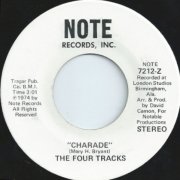 |
7" ( 1974) ***/TT½ Charade You Mean Everything to Me |
Current availability:
Mellotron used:
The Four Tracks were a pretty typical Birmingham, Alabama vocal quartet specialising in the soft, Philly-style soul of the period. Their sole single, 1974's Charade is apparently now a Northern Soul fave (note to US readers: this is a weird, exclusively British scene, in case you were wondering which part of 'the north' it refers to), although I can't say it's especially memorable by the standards of the genre. The b-side, You Mean Everything To Me, really is cheesy, but... it's every bit as good as major hits by The Stylistics, The Chi-lites et al., so why was it stuck on the flip?
And this is here because... David Lynch (not that one) told me both tracks are full of Mellotron. And... he's right! I'd imagine their recording budget didn't stretch to real strings, so the Mellotron makes a reasonably good substitute, although the rising line at the beginning of the b-side is very clearly Mellotronic, in case they thought they were fooling anyone. If you'd like to hear these, they've recently been released on Eccentric Soul: The Tragar & Note Labels; they're actually unusual examples of the Mellotron used on a small-label soul 45, making them worth hearing for that alone.
 |
Moon Hut (1997, 49.59) ***/T |
|
| I Wanna Be a Witch Found a Penny Could Have Been a Saint Bleed a Little, Allison Say Anything Sweetest Revenge Flowers Have O's Cowgirl's Lament |
Jen I'm Discovered Daredevil Atlantic City |
|
Current availability:
Mellotron used:
Going by her first album (of just two), 1997's Moon Hut, Kim Fox is a distinct step up from yer average female American troubadour, not just in her piano work (so far, so ordinary), but in the quirky nature of many of her songs. For every Found A Penny, Say Anything or Jen (yeah-whatever ballads), there's a Flowers Have O's, Cowgirl's Lament or Daredevil, not to mention her take on The Boss' Atlantic City. This is an album that, if only in a minor way, takes risks (spot the amplifier noise at the end of I'm Discovered), which has to be applauded.
Obviously real Mellotron flutes from Kim on Cowgirl's Lament, complete with wobbles and tape-choke, I'm glad to say. Ultimately, I get the feeling that Fox is simply too individual for mass-market tastes, although, say, Tori Amos has made a career out of doing exactly the same thing. Time and place, maybe.
See: Samples etc.
 |
Avenida Larco (1981, 39.27) ***/T |
|
| Obertura Avenida Larco Mundo Raro Pastas Pepas y Otros Postres Esto es Iluminación Floral Hombres Solos (el Caimán) Lizy |
Oda al Tulipán Le Dicen Rock |
|
Current availability:
Mellotron used:
For years, I've been under the impression that Peru's Frágil (named for their heroes Yes' fourth album, unsurprisingly) were yet another case of the South American Mellotron Disease, despite being from the other side of the continent to all those Argentinian bands. The disease? Crediting 'Mellotron' on your '70s/'80s album, which actually contains no such thing, while sporting a fairly prominent string synth. However (and thanks for this, Mike), in this case, I appear to be wrong.
Their debut, 1981's Avenida Larco, features many forthcoming neo-prog tropes, despite being both earlier than and an awfully long way from the genre's epicentre, perhaps proving that third-generation prog had become more than a little self-referential. Well, their name... Originality, sadly, isn't their strong suit; I spotted little bursts (often only a chord or two) of Saga, Rush, UK, Genesis and others; despite predating them, this could almost be IQ in places. Another trope that was about to emerge from the British scene is the rather unwelcome tweeness apparent on several tracks, although material such as opener Obertura, Hombres Solos (Caiman) and Oda Al Tulipán make this just about worth the effort. Also, despite their Spanish-language vocals, there's little obvious South American influence to be heard here, unlike, say, Quaterna Requiem.
Quite where César Bustamante sourced a Mellotron in early '80s Peru is unknown, but there it is, on two tracks, with chordal flutes (under Octavio Castillo's real one) on Hombres Solos (Caiman) and strings, alongside the ubiquitous string synth, on Lizy. To be brutally honest, fans of prime '70s prog aren't likely to get much from this, although it has its moments. Frágil began life as a covers band; dare I say, it shows?
See: Samples etc.
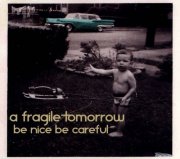 |
Be Nice Be Careful (2012, 48.06) ***½/T½ |
|
| Don't Need Saving Crooked Smiles And Speedy Hands Loyalty Lies Blank Paper Longtime To Be Happy Intentions All My Friends Are Gone |
Kernersville Mess You Made Count On Both Hands My Home Three More Hours Dropout Reunion Daylight |
|
Current availability:
Chamberlin used:
South Carolina's A Fragile Tomorrow's fourth album, 2012's Be Nice Be Careful, slides between powerpop and Americana (oft-related genres, let's face it), at its best on the rocky Crooked Smiles And Speedy Hands, Long Time To Be Happy and the Byrds-esque Kernersville and Three More Hours. In fact, the nearest I can get to a criticism is that the album's a couple of tracks too long; trouble is, I've no idea which ones they might've discarded.
Dominic and Sean Kelly play producer Mitch Easter's Chamberlin, with chordal strings on Loyalty Lies, All My Friends Are Gone and Daylight. Not a classic, but a solid, reliable album, improved by its handful of tape-replay tracks.
 |
All Melody (2018, 74.00) ***/½ |
|
| The Whole Universe Wants to Be Touched Sunson A Place My Friend the Forest Human Range Forever Changeless All Melody #2 |
Momentum Fundamental Values Kaleidoscope Harm Hymn |
|
Current availability:
Mellotron used:
I've been wondering how long it would take Nils Frahm to record with the Mellotron he uses in live performance. 2018's All Melody is the answer. How to describe his style, at least on this album? Electronica-via-ambient-via-avant-garde-classical-via-post rock? Mostly instrumental, this is what happens when a trained pianist becomes interested in recording technology and analogue synths, utilising unusual studio methods (the mic'd up piano keys on My Friend The Forest) and choral voices (Kaleidoscope), amongst other non-standard techniques. But is it any good? I've no idea; it didn't appeal to me, but what does that mean?
Frahm's M400 only obviously turns up once, with vibes on A Place, while the flutes on a couple of tracks don't sound sufficiently Mellotronic to my ears. Post-rock with sequencers? Avant-classical with synths? Choral electronica? All of the above at once? Listen to Nils Frahm. The following year's Encores 2 EP (subsequently included in All Encores) credits Katinka Fogh Vindelev with 'voice samples for Mellotron', but the end result sounds nothing like anything remotely tape-replayesque, frankly.
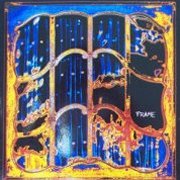 |
Frame of Mind (1972, 36.38) ***/TFrame of MindCrusical Scene All I Really Want Explain If Winter Penny for an Old Guy Childrens Freedom Truebsal |
Current availability:
Mellotron used:
In decades to come, assuming they're not entirely forgotten, it's quite possible that Uriah Heep's lasting legacy won't be seen as their first few albums, which helped to define a very British style of hard rock, but their overwhelming influence on a host of contemporaneous European bands, including Norway's Titanic, Hungary's Omega and more German bands than I care to name. Amongst them are Frame, a one-off outfit whose Frame of Mind is... entirely average. OK, it's not a bad listen, but the songs are pretty ordinary, while it's hard to find anything on this album that hasn't been done better by someone else. There's some marvellous broken English amongst the track titles, so I hate to think what the lyrics are like; All I Really Want Explain is a personal favourite on that front and is actually one of the album's best songs, as well as the longest.
Cherry Hochdörffer plays keys, mainly the ubiquitous Hammond, with only two Mellotron tracks to be heard; Winter has some rather background strings, but extremely brief closer Truebsal consists of nothing but a national anthem-style tune played on queasy Mellotron brass, the wobbly tuning of which is clearly deliberate. So, not what you'd call a classic on any front, really, although Truebsal manages to do something a little bit different, if not wholly essential.
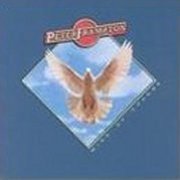 |
Wind of Change (1972, 43.23) **½/½ |
|
| Fig Tree Bay Wind of Change Lady Lieright Jumpin' Jack Flash It's a Plain Shame Oh for Another Day All I Want to Be (is By Your Side) The Lodger |
Hard Alright |
|
Current availability:
Mellotron used:
By 1972 and the age of twenty-two, Peter Frampton had already had a couple of careers, fronting late-'60s popsters The Herd (also including Andrew/Andy Bown, later of Judas Jump and, er, Status Quo), then co-founding Humble Pie with ex-Small Face Steve Marriott. He was still four years away from his career-defining moment, '76's inexplicably huge Frampton Comes Alive!, when he released his first solo album, Wind of Change. If you've heard the soporific Comes Alive, you'll have some idea what to expect; Frampton was never really a rocker, largely preferring soft rock balladry. Even his version of The Stones' Jumpin' Jack Flash has a naff brass part that neuters the arrangement, while other 'rock' efforts like It's A Plain Shame or Alright just fall flat.
Anyway: Mellotron. The previously-mentioned Andy Bown (they presumably stayed mates post-Herd) plays a muted string part on All I Want To Be (Is By Your Side), not to be confused with the real strings on a couple of tracks. Do they add anything to the song? Not really, no; the song's a typical example of the album's sound and a good two minutes too long, while the Mellotron's mixed too low to have any real effect, anyway. All in all, you really don't need this album unless you're a Frampton fanatic (er...); it's pretty typically bland, mainstream early-'70s rock, with fairly minimal Mellotronic input.
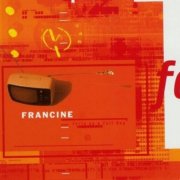 |
Forty on a Fall Day (2000, 49.10) ***/½ |
|
| Set of Dune Trampoline Want Ad King East Hampton Quasars So Eureka Stampy Jet to Norway |
Reddish Blonde And Mean as Hell Pop Warner Failing Robot Maid Aw Grace I Do Too |
|
Current availability:
Chamberlin used:
Francine were formed by Clayton Scoble, who'd played with Aimee Mann in 'Til Tuesday some years earlier. Their second release, Forty on a Fall Day, is an indie/powerpop crossover album, not entirely dissimilar to Mann's work of a few years earlier, featuring plenty of Aimee-esque harmonic twists and turns. Highlights? Trampoline, Pop Warner and the excellent Aw Grace, although chopping a few lesser tracks would probably have improved the album.
Mike Denneen (Gigolo Aunts, Velvet Crush) plays Q Division Studio's MusicMaster 600 Chamberlin, with occasional strings on closer I Do Too, although the muted FX bells and rhythms at the beginning of Mean As Hell are Optigan (thanks, Clayton).
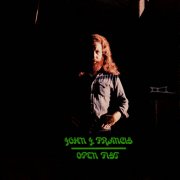 |
Open Fist (1974, 49.47) ***½/TTLiving in SydneyThings Are Never Quite the Same City Lights, Saturday Night 1959 The Other Side of the Coin Don't Know Where I'm Going Trouble in My Head Countryside Angelus Headin' for Armageddon Despair |
Current availability:
Mellotron used:
After playing in several bands in the '60s, John J. Francis (1945-2022) released a few solo albums in the first part of the '70s. 1974's Open Fist was the third of four such, an odd combination of dirty rock'n'roll (opener Living In Sydney, City Lights, Saturday Night 1959, Trouble In My Head) and dreamy acoustic numbers (Things Are Never Quite The Same, the beautiful Don't Know Where I'm Going, Countryside Angelus), winding up with the epic, fifteen-minute Despair, a piano-driven piece that sounds like an Aussie Dylan (an obvious reference point) at his most long-form. Kind of.
Chris Neal plays Mellotron, with a liquid strings part on The Other Side Of The Coin and a major choir part several minutes into Despair, repeating throughout, although the massed cellos on Headin' For Armageddon sound real. Ultimately, Francis sounded like no-one but himself, making it all the sadder that his career is so ill-served by reissues.
See: Chris Neal
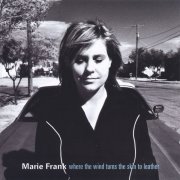 |
Where the Wind Turns the Skin to Leather (2005, 45.11) ***/TT |
|
| I Like it When You Sleep Kiss the Messenger Drive It Can't Get Any Worse Leather Scrabble-ina I See What You Say Whoops Wrong Daisy |
It Passed You By All Fall Down Spot on the Moon |
|
Current availability:
Mellotron used:
Else Marie Frank Pallesen is a Danish singer-songwriter of the confessional school, going by her third album, 2005's Where the Wind Turns the Skin to Leather. While largely not to my taste (did I spot a burst of the dreaded bossa nova on one track?), this is leaps and bounds ahead of Frank's British and American competitors, at its best on It Can't Get Any Worse, the bluesy It Passed You By and atmospheric closer Spot On The Moon.
I don't know how Giant Sand's Howe Gelb became involved (although he was a keen user of Aarhus' Feedback Recording studio, and may have just finished work on Giant Sand's Is All Over the Map), but he appears on several tracks, including the major Mellotron flute part on Kiss The Messenger, while Søren Koch plays cellos on It Can't Get Any Worse, and Jørgen Holmegaard adds strings towards the end of Scrabble-Ina and distant choir notes (plus pitchbend) to I See What You Say.
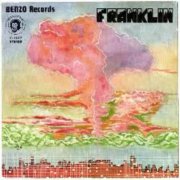 |
7" ( 1973) ***½/TTT What is Wrong? Lasidore - Mifamire |
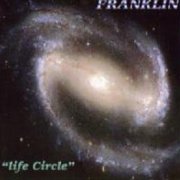 |
Life Circle (2007, recorded 1971-74, 77.37) ****/TTTT |
|
| Satisfaction Border Song What is Wrong? Lasidore - Mifamire Don't Let it Bring You Down Open Your Heart Beginning Soft Landing |
Dies Irae part 1 Dies Irae part 2 Take Off Renaissance Intro for Cosmic Body Caos-Deconstruction End of the Beginning |
|
Current availability:
Mellotrons used:
Franklin were apparently one of Spain's first 'underground' bands, not the easiest of paths when living in a dictatorship; they released two singles in the 1971-3 period, then recorded an album in '74 that was never released. Fast-forward thirty-something years and those nice Guerssen people release the whole lot on a double vinyl/single CD set, Life Circle, making this what has to be one of the best 'lost' albums to appear in years. Given its quality, it comes as no surprise to discover that one of the guitarists from the first lineup, Antonio Garcia de Diego, played on Canarios' classic Ciclos, while bandleader Pablo Weeber moved to Germany later in the decade, joining Hoelderlin for two of their later albums.
The first LP/first six tracks of the CD collate both singles and two live tracks, all in a hard psych style with occasional prog overtones. The first 7" couples their versions of The Stones' satisfaction (barely recognisable) and Elton John's Border Song, to passable effect, while the second (from '73) backs What Is Wrong? with Lasidore - Mifamire in a proggier style, both tracks swamped with Mariano Díaz' Mellotron strings. The unreleased album is a straight psych/prog mix, hints of a jazz influence creeping in on Caos-Deconstruction. The rather Italian-sounding Pino Scagliarini plays keys on the '74 tracks, including Mellotron almost across the board, with choir and strings on Soft Landing and Renaissance and strings on Dies Irae Parts 1 and 2, Take Off, Intro For Cosmic Body, Caos-Deconstruction and End Of The Beginning, making this not only a worthy release, but a previously-unknown minor Mellotron classic. Although the vinyl edition was strictly limited, I'm sure the CD is easily available.
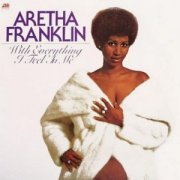 |
With Everything I Feel in Me (1974, 39.30) ***/TWithout LoveDon't Go Breaking My Heart When You Get Right Down to it You'll Never Get to Heaven With Everything I Feel in Me I Love Every Little Thing About You Sing it Again - Say it Again All of These Things You Move Me |
Current availability:
Mellotron used:
Er, Aretha Franklin? Yup, the Queen Of Soul (1942-2018) has finally made the grade: an entry on Planet Mellotron (note for humourless soul nuts: that was a joke). She shouldn't need any introduction to anyone with any interest in the history of post-war music, so I shan't bother; suffice to say, she's generally regarded as having one of the great voices of the last several decades and has recorded some immortal soul sides, whether or not you (or, indeed, I) actually like what she does.
1974's With Everything I Feel in Me fell on the cusp between soul and disco, elements of both appearing on the album, making it surprising it was a commercial failure at the time; I'm no expert, but this sounds to me as good as any soul album from the period and better than many, although I'm not fully convinced by her solo scatting at the end of You'll Never Get to Heaven. Maybe it was (and is) considered to be trying to cover too many bases, none of them that successfully? The gospel of All Of These Things sits uneasily with the rest of the record, but surely Aretha fans these days would be less interested in such distinctions?
Pat Rebillot (Herbie Mann) plays Mellotron, with flutes on When You Get Right Down To It, including a surprisingly fast run at one point, just to show it can be done, although (unsurprisingly) all string parts are real. With Everything I Feel in Me has never been (officially) issued on CD, probably due to its initial failure, showing that there are still noticeable gaps in the market, over twenty years after the beginning of the great reissue boom.
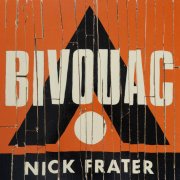 |
Bivouac (2023, 46.47) ****½/TTT½ |
||
| Wake Up Sleepyheads The Town of Opportunities (parts 1 and 2) Mean Vincent The Town of Opportunities (part 3) The Axe Hello Monday! Keep it Simple, Stupid Heaven it Can Wait |
Singing Kawai Sixteen Houses Will it Be Enough? Walking the Dog Don't Get Sentimental Closing Time Boom and Bust Man Overboard |
The Town of Opportunities (part 4) Maybe Marimbas Step Into the Motorcar Manifesto Man Leave it to the City Little Sister Moon So Long, Sleepyheads |
|
 |
Nick Frater Presents The Rebutles / 1967-1970 (2023, 31.11) ****/T½ |
|
| Mother Knows Best The Devil You Know Loose Tea in Disguise Don't Play the Fool You're a Good Egg Back in the Unicorn Inn Oh-Blo-Mi, Blo-Mi-Off One Lump or Two? |
Nothing Maxwell House Hotel Come Get Your Tea (Naked) |
|
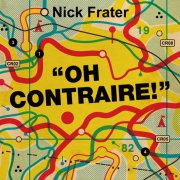 |
Oh Contraire! (2025, 33.19) ****½/T |
|
| Fanfare My Heart's in Stereo I Know You Know I Know Song for the One-Eyed City Final Reminder Seraphim Called One Minute Steal Away |
All Roads Lead to Home Dreaming of a Wonderland Goodnight, Goodbye |
|
Current availability:
Mellotrons used:
Nick Frater is a London-based singer-songwriter, operating in the Beatles/Beach Boys/Rundgren/Squeeze area of intelligent, frequently conceptual pop. 2023's Bivouac is his eleventh album, a masterpiece of gently psychedelic, literate pop, earworm melodies reiterating throughout in proper 'concept album' style. Did I say concept? Quoting directly from Nick's Bandcamp page, "Embarking on a thematic journey, it encapsulates the quest for solace in a woodland sanctuary amidst post-industrial Britain." So there you have it. Is the concept relevant to your enjoyment of the album? It is not. Oh, and did I mention powerpop legend Roger Joseph Manning, Jr. turns up?
Nick came to my vintage keys overdub facility and, well, did some overdubs! Solina, MiniMoog, ARP Pro-DGX and, of course, the Mellotron, played mostly by himself, with help from our mutual friend Luke Smith and a little from my good self. Strings on Parts 1 and 2 of The Town Of Opportunities, The Axe and Keep It Simple, Stupid, while Man Overboard reiterates the part from The Town Of Opportunities, with more strings on Maybe Marimbas and Manifesto Man and flutes on Step Into The Motorcar. Mellotron highlight? Undoubtedly Closing Time, featuring flutes, violas and perfectly pitchbent strings (does my M400 really do that?) and possibly brass, although those saxes sound more like Derrick Coonghe's real ones. Listening to the Mellotron work on display here highlights the difference between samples and the real deal; I know you'll expect me to say this, but it sounds organic, probably because it is. In comparison, samples sound dull and lifeless, however 'authentic' they appear, at first glance, to be. Anyway, Mellotron or no, this is a stunning record, more than worthy of your attention. Buy.
While recording Bivouac, Nick was also working on Nick Frater Presents The Rebutles / 1967-1970, a follow-up to '21's (deep breath) Nick Frater Presents The Rebutles: Ron, Dirk, Stig & Barry: The Solo Years, Volume 1, initially released online for twenty-four hours on Boxing Day 2023 (26th December, for non-Brits). The Rebutles? This is a joke within a joke, a meta-meta-meta take on the late Neil Innes' splendid Rutles, a wafer-thinly disguised pastiche of a Beatles parody. And? It's glorious! As with his progenitors, every song cuts a Beatles number this close, not least The Devil You Know (A Day In The Life), Loose Tea In Disguise (say it out loud), Oh-Blo-Mi, Blo-Mi-Off (obvious) and Don't Play The Fool (Fool On The Hill). Nick recorded my Mellotron at the Bivouac session; oddly, I'm the only credited player, adding the mad strings to The Devil You Know, doing their best to fake the (face it, really clunky) glissando at the end of A Day In The Life, while Nick plays on Loose Tea In Disguise, which not only features flutes and strings, but mentions them in the lyrics. Nick's been honest enough to admit he used samples on You're A Good Egg (flutes and strings) and string lines on Don't Play The Fool and Nothing, due to running out of time! This is proper, laugh-out-loud funny, essential listening for anyone who ever wet themselves laughing at All You Need is Cash. Oh, and it's available both online and on CD, despite that one-day-release gimmick.
2025's Oh Contraire! is another selection of sublime, beautifully-crafted songs you could (at a pinch) describe as 'powerpop', all the usual influences present and correct. It kicks off with the beautiful, Brian Wilsonesque Fanfare, kicking straight into the über-catchy My Heart's In Stereo, possibly the definition of 'frontloading'. Other highlights including Seraphim Called, the bouncy One Minute (which is incredibly familiar. Do I remember it from the session?) and Dreaming Of A Wonderland, but nothing, repeat, nothing here disappoints. Nick played nine (count 'em) different instruments in a one-day session at mine, including, of course, the Mellotron, with a major string part on All Roads Lead To Home, although the strings on Dreaming Of A Wonderland sound like my Solina. If you take just one thing away from this site update, make it this album. Stupendous.
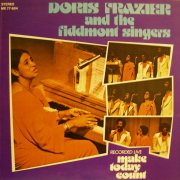 |
Make Today Count (1978, 30.57) **½/TTTMake Today CountWhere is Your Heart Only Jesus Can Satisfy Choose Ye This Day Hallelujah My Father Take Time to Check God Out One Day at a Time Seasons of Love There's Just Something About That Name |
Current availability:
Chamberlin used:
Doris Frazier? A St Louis gospel singer, beginning her career in the '60s with her family assemblage, the Fiddmont Singers, led by her brother, the Rev. Charles Fiddmont. They made at least four albums, including I've Been Touched (er, OK) and 1978's live Make Today Count. It's a poorly-recorded document of their particular brand of gospel, five of its nine tracks composed by Doris and her husband, Clifford, only really coming to life on the occasional uptempo tracks, notably the amusingly naïvely-titled Take Time To Check God Out. Watch for the preacher-esque spoken word part in closer There's Just Something About That Name, too. Aside from the crummy recording, the pressing quality is terrible; my supplier (hi, Mark) suspects a severely-budgeted local label.
One of no fewer than three single-instrument keyboard players, Tom Brooks, adds Chamberlin strings to every track, in the expected pseudo-orchestral style; as is the way with the Chamby, it almost fools the ear in places, although it's too high in the mix to get away with it for long. Well, do you like the idea of Chamberlin strings-heavy gospel? No, nor me, really, although I can't fault the Fraziers and Fiddmonts for their enthusiasm and musicianship; file under 'just not my bag'.
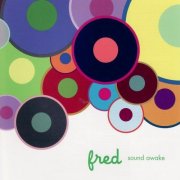 |
Sound Awake (2005, 37.49) ***/T½ |
|
| Piscetarrius Good Night Sound Awake Sleep Two Angels Colored in Snow Fuck You Stars Tease |
Sugar System to the Grind Waiting Patient Sunshine Between There's an Ocean Moonshine |
|
Current availability:
Mellotron used:
Hard and fast info on Fred is proving difficult to find, so I'll make an educated guess that he's a.k.a. Freddie Lemke, vocalist, composer and keyboard player on 2005's Stay Awake. This is almost a powerpop album, only he/they stick doggedly to the lightweight end of the genre, almost crossing over into MOR in places. Better tracks include opener Piscetarrius, Good Night and the energetic Fuck You Stars, but the mantra 'less cheese' should've been utilised a little more, I feel.
Matt Henry Cunitz plays his Mellotron, alongside other keys, with background strings on Good Night and slightly more upfront ones on Colored In Snow, although other possible sightings (notably the strings at the end of the album) are probably something else. Suffice to say: could've been better, but then, could've been worse.
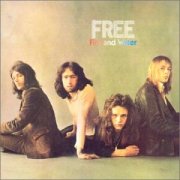 |
Fire & Water (1970, 36.05) ***½/½Fire & WaterOh I Wept Remember Heavy Load Mr Big Don't Say You Love Me All Right Now |
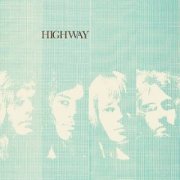 |
Highway (1970, 35.58/58.56) ***/T½ (TT) |
|
| Highway Song Stealer On My Way Be My Friend Sunny Day Ride on a Pony Love You So Bodie |
Soon I Will Be Gone [CD adds: My Brother Jake (single) Only My Soul (b-side) Ride on a Pony (BBC Session) Be My Friend (BBC Session) Rain (alternative version) Stealer (single version) |
|
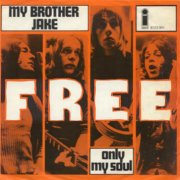 |
7" (1971) **/T½ My Brother Jake Only My Soul |
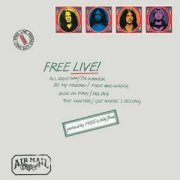 |
Free Live! (1971, 40.36) ****/TAll Right NowI'm a Mover Be My Friend Fire and Water Ride a Pony Mr Big The Hunter Get Where I Belong |
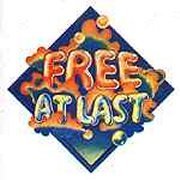 |
Free at Last (1972, 36.57) ***/TCatch a TrainSoldier Boy Magic Ship Sail on Travellin' Man Little Bit of Love Guardian of the Universe Child Goodbye |
Current availability:
Mellotrons used:
Free are one of those bands that I feel I should like, but about whom I find it difficult to get excited. Part of the problem is that I don't feel their sound has dated very well, unlike, say, Zeppelin's; their blues/rock hybrid sounds rather laid-back for modern tastes, although I know that many of you out there will disagree. As a result, these reviews may seem rather unenthusiastic, although I bear the band's 'classic' status in mind.
Fire and Water is rated as their 'classic' by many fans and, while good, the first thing that strikes you about it is the soporific pace of most of the material, even the ubiquitous All Right Now being 'sprightly' at best. Apart from 'the hit', Mr Big is probably the album's standout track, whipping up a bit of a storm, admittedly in a laid-back kind of way. Bassist Andy Fraser plays loads of piano on the album, too, while there's a couple of MkII string (mixed with brass?) notes on Heavy Load, but that seems to be it on the Mellotron front this time round.
I'm sorry, but I can't help but find Highway rather... dull. It's relentlessly mid-paced, consisting mostly of ballads, completely belying Free's reputation as a band of any great intensity. The playing is, of course, excellent, although there's very little of Kossoff's famed guitar work in evidence (I believe the band were heading towards burnout at the time). Mellotron on a surprising three tracks, with a few background string notes on Be My Friend and Love You So and a rather more upfront (if still quite subtle) part on closer and probable best track, Soon I Will Be Gone. The uncharacteristic (and not actually that good) My Brother Jake's been added to the remastered CD, a good-time singalong sort of thing from '71, with Mellotron strings from Fraser, a brief part coming in during the second verse, with another few notes at the end of the song. Really not worth the effort.
While Free Live! still isn't going to convert me unreservedly to their cause, it's a good live album with some great performances, not least the kicking All Right Now that opens proceedings. Not so sure about Be My Friend or Ride A Pony, while the whole thing sounds rather dated, but The Hunter makes up for any earlier deficiencies. Despite there being no lack of live material, somebody opted to stick a studio track, Get Where I Belong, at the end, complete with piano and a handful of Mellotron chords, which pop up from nowhere then disappear again. Free's fifth studio album and the first after their much-publicised reformation, Free at Last, carries on in pretty much the same vein as their earlier work, being a straight blues/rock crossover. I find it difficult to pick out highlights, although the album's chief Mellotron track, Magic Ship, is probably about the best. There's a few notes of very background Mellotron on the album's hit, Little Bit Of Love, apparently played by Rodgers this time round, but that's it.
Although 2000's sprawling, five-disc Songs of Yesterday features several Mellotron tracks, all in different mixes to the original recordings, there's nothing genuinely new to be heard. And on a related note, don't forget to check out the Kossoff, Kirke, Tetsu & Rabbit review to see what some of Free did in their gap year.
See: Kossoff, Kirke, Tetsu & Rabbit
Free System Projekt/Brendan Pollard/ |
 |
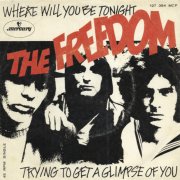 |
7" (1968, 6.40) ***½/TTT Where Will You Be Tonight Trying to Get a Glimpse of You |
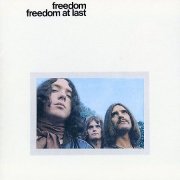 |
Freedom at Last (1969, 46.51) **½/T |
|
| Enchanted Wood Deep Down in the Bottom Have Love Will Travel Cry Baby Cry Time of the Season Hoo Doo Man Built for Comfort Fly |
Never Loved a Girl My Life Can't Stay With Me Dusty Track |
|
Current availability:
Mellotrons used:
The Freedom were formed around 1968 by two ex-members of Procol Harum, guitarist Ray Royer and drummer Bobby Harrison, soundtracking a dodgy Italian film soon after, not even being informed that the resulting album, Nero Su Bianco (Black on White), had even been released. Their first single, Where Will You Be Tonight, is a Procol-alike, albeit with occasional Mellotron strings, but its flip, Trying To Get A Glimpse Of You, is a great little slice of classic psych, about which I feel forced to use that appalling cliché, 'Mellotron-drenched'. There, I've said it. Anyway, chordal strings (from Mike Lease - thanks, Mike) overlaid with a flute melody make for a worthwhile Mellotron experience; why wasn't it the A-side?
By the time they released their first album 'proper', 1970's Freedom at Last, they'd become a typical lower-division hard rock act, proving it throughout the album's rather excessive twelve tracks, not least with a perfunctory run-through of The Zombies' immortal Time Of The Season, directly followed by the tepid blues of Hoo Doo Man and Built For Comfort. The impression it gives is of musicians who'd grown up with the blues, gleefully reverting to type after a couple of years of 'straitjacketing' psychedelia. The effect, particularly with the benefit of hindsight? Boredom, frankly. One of the best things here is (guess what) a minor reversion to their psych past, My Life, although this dull album's highpoint has to be Walter Monaghan's Mellotron flutes on Cry Baby Cry, possibly from a studio MkII.
I've been led to believe that there's some Mellotron input on their second album, 1971's Through the Years (***), but having given it a close listen, I can quite assure you that there isn't. The pejorative description 'lower-division' that I used above was spot-on, too; very ordinary. So; both sides of their first single are worth hearing, Particularly for their Mellotron input, but At Last is mostly disappointing, albeit with one great Mellotron track.